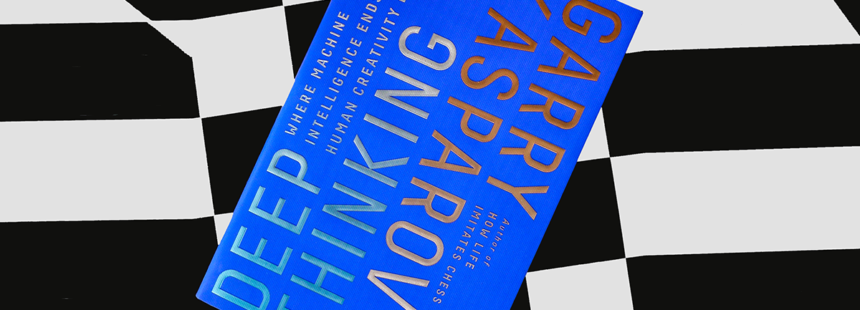

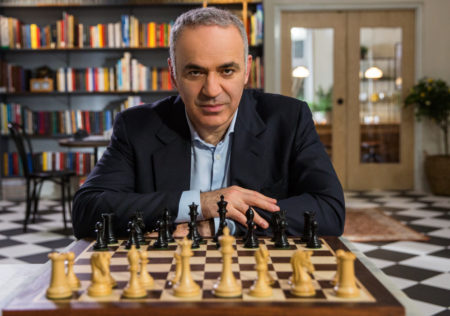 Dear Friends,
Dear Friends,
Another year is coming to a close. The conventional wisdom is that 2017 was a tumultuous year, an annus horribilis full scandals, disasters, and a negative trend that we can only hope to reverse in the coming year. It’s not just my contrarian nature that makes me want to push back against this dismal narrative. I am not going to deny there have been many challenges and outright disasters in the past year, of course. After all, the first step in making things better is to make an honest evaluation. There are, however, plenty of silver linings to be found, as well as some inarguably positive developments.
This is more of a personal message than a global ‘Year in Review’, but I want to offer some encouragement to the many people who are depressed or even panicked about the global state of affairs, especially considering the occupant of the White House. Donald Trump is unstable, autocratic by nature, and obsessed only with his own image; his presidency threatens to unbalance decades of relative post-Cold War stability. But if someone like Trump can shake the democratic foundations of the United States, how stable were those foundations? As I warned back in February, Trumpism is exposing the many cracks that existed in the separation of powers, conflicts of interest, the relationship of the free press with politics and business, and the deep divides separating many Americans on social and economic issues. This is very dangerous, yes, but it’s also a vital wake-up call to repair and heal those institutions and divisions.
All those issues already existed and were slowly getting worse under the radar. Thanks to Trump, Americans and people in many other democratic nations are actively fighting back against the threat of anti-democratic forces from abroad and in their own countries. In this regard, the US investigation into Russian influence on the 2016 election is important. Will it be allowed to conclude? Will action be taken against Putin , or others in the Trump administration? It’s not just important for itself, but as a test of the system’s ability to defend itself.
I’m also optimistic because there is no benefit to being otherwise! Believing in positive change, and taking action to create it, is how we get others to accompany our efforts and make it real. This is also true in tech, where I believe strongly in the self-fulfilling prophecy of our innovations like artificial intelligence. If we believe things will go well, we are more likely to invest in the future and take more risks—exactly the behavior that make things go well!
It has been a mixed blessing to become a sort of visiting expert not on chess, or even human-machine or Russia or decision-making, but as the voice of experience in how a democracy becomes an autocracy.
That is, I’m glad people are listening to me, but it’s frightening that such expertise is needed and relevant. No, I don’t think America is going to become a dictatorship the way Putin destroyed Russian democracy. But the lessons of the fragility of democracy must not be forgotten. In the words of former Supreme Court Justice Sandra Day O’Connor, “The practice of democracy is not passed down through the gene pool. It must be taught and learned anew by each generation of citizens.”
2017 was a very full year for me professionally and personally. I logged a record number of hours in the air, which is quite something considering how much I always travel. This perpetual motion was mostly the result of rising interest in my areas of interest: Russia, human rights, and human-machine collaboration. The Human Rights Foundation, of which I am chairman, hosted our first New York City edition of the Oslo Freedom Forum, celebrating in both events the work of dissidents against authoritarianism around the world.
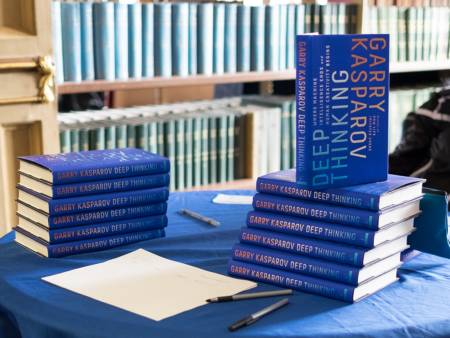 In February, my book Deep Thinking was published by Public Affairs. It focuses on the human-machine relationship, grounded in my own experiences. It was timed for the 20th anniversary of my famous rematch with the IBM supercomputer Deep Blue in 1997, but it turned out to be ideally timed for the huge wave of interest and real-world impact of artificial intelligence—or, as is more accurate in many cases, augmented intelligence. I was flattered by the book’s critical success , especially the gracious reception by many experts in the field whose work I have learned so much from. Google DeepMind’s Demis Hassabis, creator of the groundbreaking AlphaGo and AlphaZero machine learning systems, has been very supportive and hosted me at Google HQ in London for a talk about our shared passion for the power of machine learning to transform our world—and how chess and other games are still an ideal laboratory.
In February, my book Deep Thinking was published by Public Affairs. It focuses on the human-machine relationship, grounded in my own experiences. It was timed for the 20th anniversary of my famous rematch with the IBM supercomputer Deep Blue in 1997, but it turned out to be ideally timed for the huge wave of interest and real-world impact of artificial intelligence—or, as is more accurate in many cases, augmented intelligence. I was flattered by the book’s critical success , especially the gracious reception by many experts in the field whose work I have learned so much from. Google DeepMind’s Demis Hassabis, creator of the groundbreaking AlphaGo and AlphaZero machine learning systems, has been very supportive and hosted me at Google HQ in London for a talk about our shared passion for the power of machine learning to transform our world—and how chess and other games are still an ideal laboratory.
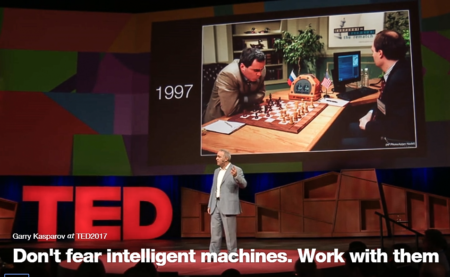 Consulting firms and financial asset companies are rushing to stay ahead of this wave, and I’ve had many opportunities to serve as a sort of translator and evangelist for the positive future of intelligent machines. My business lectures have always focused on human strategic thinking, and that is still true. The difference now is that working with algorithms and big data is an essential element of that strategy for nearly every business. At every event, I hear from experts in other fields about how increasingly vital the theme of human-machine collaboration is, from medical diagnosis to asset management to cyber-security. I’ve learned so much in the year since Deep Thinking came out that I almost feel like I could write a sequel immediately.
Consulting firms and financial asset companies are rushing to stay ahead of this wave, and I’ve had many opportunities to serve as a sort of translator and evangelist for the positive future of intelligent machines. My business lectures have always focused on human strategic thinking, and that is still true. The difference now is that working with algorithms and big data is an essential element of that strategy for nearly every business. At every event, I hear from experts in other fields about how increasingly vital the theme of human-machine collaboration is, from medical diagnosis to asset management to cyber-security. I’ve learned so much in the year since Deep Thinking came out that I almost feel like I could write a sequel immediately.
At several events for McKinsey, I discussed the moment at which humans must go from experts to operators in order to gain the greatest benefit from intelligent machines. In Helsinki, Zurich and Singapore for Management Events, I talked about how people’s role is to define the problems while our increasingly smart algorithms then solve them. In my TED Talk and at DefCon I spoke about the need for more tech disruption, not less, so that we can stay ahead of our machines by coming up with more challenges, more things we don’t know how to do. In every case, I emphasize the eternal value of human creativity and purpose. I may have been the first knowledge worker to be surpassed by a machine, but I’m here to say that this can be a good thing for every industry!
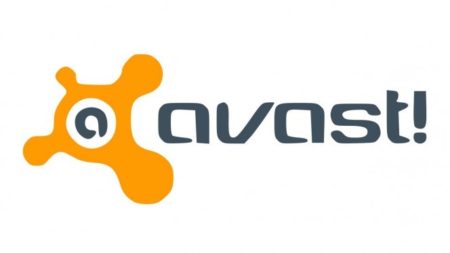 I made several appearances with a specific focus on security as part of my continuing partnership with Avast Software, a premier digital security firm. As a “Security Ambassador” for Avast, I’ve also been blogging regularly about the nexus of technology, privacy, security, AI, and human rights. I’m impressed at Avast’s interest in participating in these complicated conversations. They realize, as I do, that tech isn’t good or evil, but agnostic , and there will always be threats and arguments about right and wrong. The goal is to keep having this conversation and to thereby create better humans, not just smarter machines.
I made several appearances with a specific focus on security as part of my continuing partnership with Avast Software, a premier digital security firm. As a “Security Ambassador” for Avast, I’ve also been blogging regularly about the nexus of technology, privacy, security, AI, and human rights. I’m impressed at Avast’s interest in participating in these complicated conversations. They realize, as I do, that tech isn’t good or evil, but agnostic , and there will always be threats and arguments about right and wrong. The goal is to keep having this conversation and to thereby create better humans, not just smarter machines.
That statement has been my mantra as a member of the executive board of Noel Sharkey’s Foundation for Responsible Robotics . The focus here has been on putting pressing issues in front of governmental bodies before there is a crisis. For example, autonomous weapons systems encapsulate every “Terminator” nightmare scenario in the real world. I’m not in favor of dystopian fear-mongering about “killer AI,” of course, but policy and public debate must accompany the growth of any new technology, as I said to an OSCE conference on the topic.
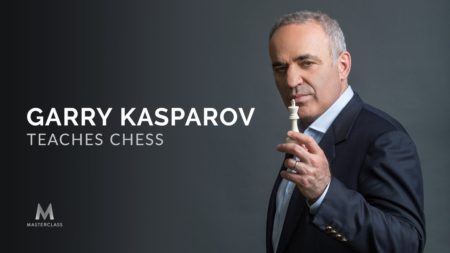 A new challenge for me was the production of my online video chess Master Class, which was just released this week. I’ve had many invitations to produce a chess course over the years, but this was the first time I could see that the presentation and quality were high enough to contribute my name and many days of exhausting effort. It’s a new way to promote the great game that gave me so much, and I must say that the results exceeded my high expectations. You can check out the trailer if you doubt my words.
A new challenge for me was the production of my online video chess Master Class, which was just released this week. I’ve had many invitations to produce a chess course over the years, but this was the first time I could see that the presentation and quality were high enough to contribute my name and many days of exhausting effort. It’s a new way to promote the great game that gave me so much, and I must say that the results exceeded my high expectations. You can check out the trailer if you doubt my words.
Speaking of promoting chess, the Kasparov Chess Foundation celebrated its 15th anniversary with a small event for supporters and players. Our goal from the beginning has been to promote chess in the education system, and that continues to be an expanding success. Along with the Saint Louis Chess Club and Scholastic Center , KCF also supports the training of the top junior players in the United States, and the results have been incredible, with multiple medal winners.
I wish I could say the same about my own chess performance in 2017, but I’m afraid that the less said about my brief unretirement at the Saint Louis Rapid and Blitz tournament, the better. I was happy to help promote the great work Rex Sinquefield and his Saint Louis team do for chess, and in that regard, my participation was a real success. And since this is my message, I’ll leave it at that!
Best wishes to all from the entire Kasparov family. Let 2018 be the year in which we apply the many hard lessons we learned in 2017.

